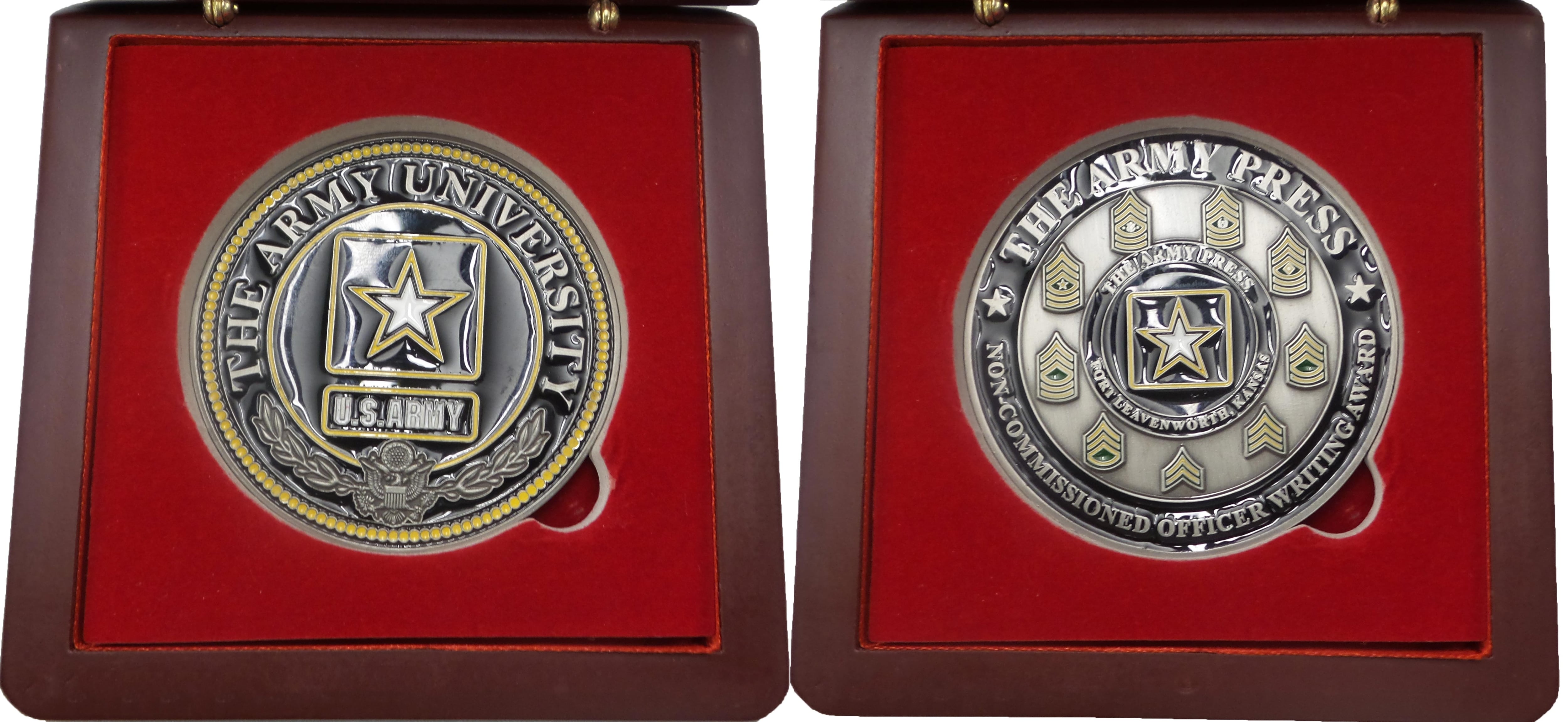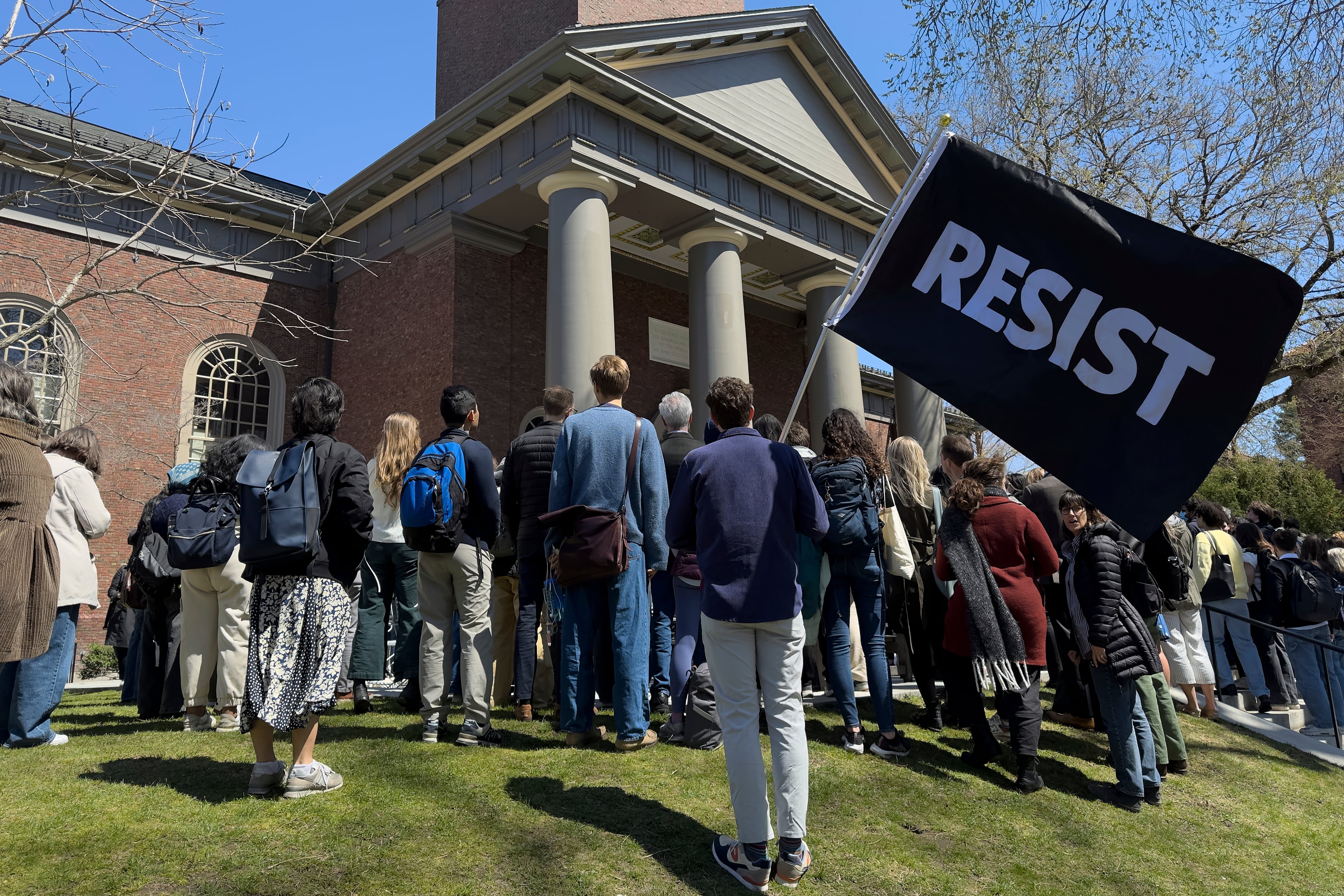The Army has launched a new NCO Writing Excellence Program to boost soldiers' writing skills and stimulate discussions on key issues for noncommissioned officers.
The quarterly competition was the brainchild of Command Sgt. Maj. Michael Clowser, the senior enlisted soldier for Army University.
"We were trying to think of things to do to help the NCO Journal grow, and as time went on, we saw that there was really a need in the Army for professional development in the area of writing," said Master Sgt. Gary Qualls, the NCO in charge of the NCO Journal and leader of the NCO Writing Excellence Program.
The ability to write clearly and succinctly is a critical skill for soldiers, Qualls said.
"The Army's changing, the world's changing, it's becoming a more complex battlefield," he said. "Nowadays, because of the nature of the enemy and the nature of the operational environment, there's a requirement to be able to operate more effectively in a complex situation, and that includes being adept in verbal and written skills."
How does this work?
The writing competition, which is open to NCOs in all three Army components, takes place every quarter. The winner receives a commemorative Army University and Army Press coin and a certificate of achievement signed by a general officer. The winning submission also will appear in the NCO Journal, which is the Army's official publication for NCO professional development.
What's the timeline for the competition?
The first quarter of competition just wrapped up. Just two papers — one co-written by two NCOs — were submitted that time, but Qualls said he was pleased with the quality of both submissions.
"You start off slow and you build momentum as you go along," Qualls said.
The winners of the first quarter competition are Master Sgt. Jorge Rivera, Sgt. 1st Class Edrena Roberts and Staff Sgt. Christopher Rance.

Winners of the quarterly NCO Writing Excellence Program win a commemorative Army University and Army Press coin.
Photo Credit: Army
When's my next chance to participate?
The deadline to submit the next quarter's papers is July 1. The theme for the ongoing competition is "How important is a college education to soldiers and the enlisted ranks? Is a college education more important than military education? Why and how?"
Qualls also has set the topics for the next three quarters. They are:
• "How will a downsizing Army affect soldiers' ability to accomplish the mission? What kind of challenges will this bring about?" Submissions are due Oct. 1.
• "Compare and contrast past and current Army marketing strategies. Some fails, some succeeded. Why? How?" Submissions are due Jan. 1.
• "Are junior soldiers given responsibilities and leadership opportunities before becoming NCOs? Are they getting opportunities and responsibilities where they can learn hands-on, succeed or fail, before they get the coveted promotion to NCO?" Submissions are due April 1.
What do I need to do?
Submissions should be 1,500 to 30,000 words or 10 to 20 typed, double-spaced pages. Articles should reflect original research and thought, and they must not have been previously published elsewhere.
Entries should be e-mailed as a Microsoft Word attachment to usarmy.leavenworth.tradoc.mbx.army-press-blog@mail.mil. Include "Army Press NCO Writing Excellent Award Program Submission" in the subject line of the e-mail. Each submission must include a cover letter.
Soldiers can submit one article per quarter
Visit this website for more information and a sample submission.
Why should I do it?
Qualls said he hopes the competition will take off among his fellow NCOs.
"I feel it's a really important program because NCOs have a lot to offer," he said. "And if we come off looking unprofessional and unskilled, then that's a reflection on the NCO corps. I think it's important for that reason that we sharpen our skills and be as professional as we can."
Michelle Tan is the editor of Army Times and Air Force Times. She has covered the military for Military Times since 2005, and has embedded with U.S. troops in Iraq, Afghanistan, Kuwait, Haiti, Gabon and the Horn of Africa.




